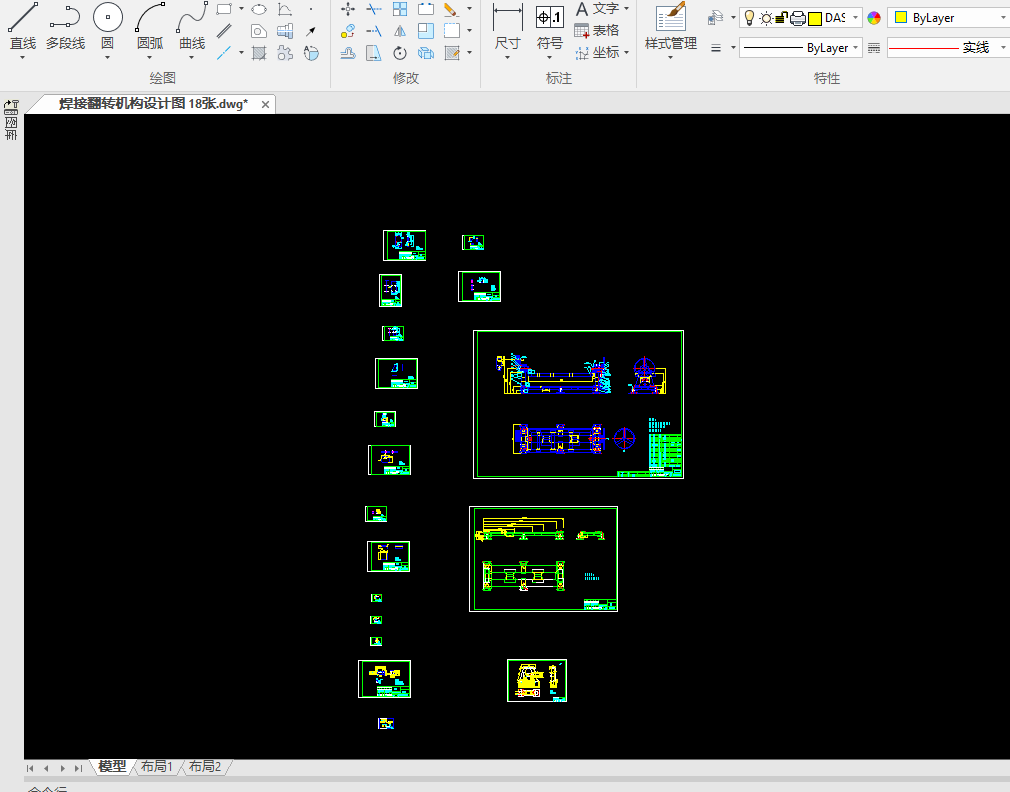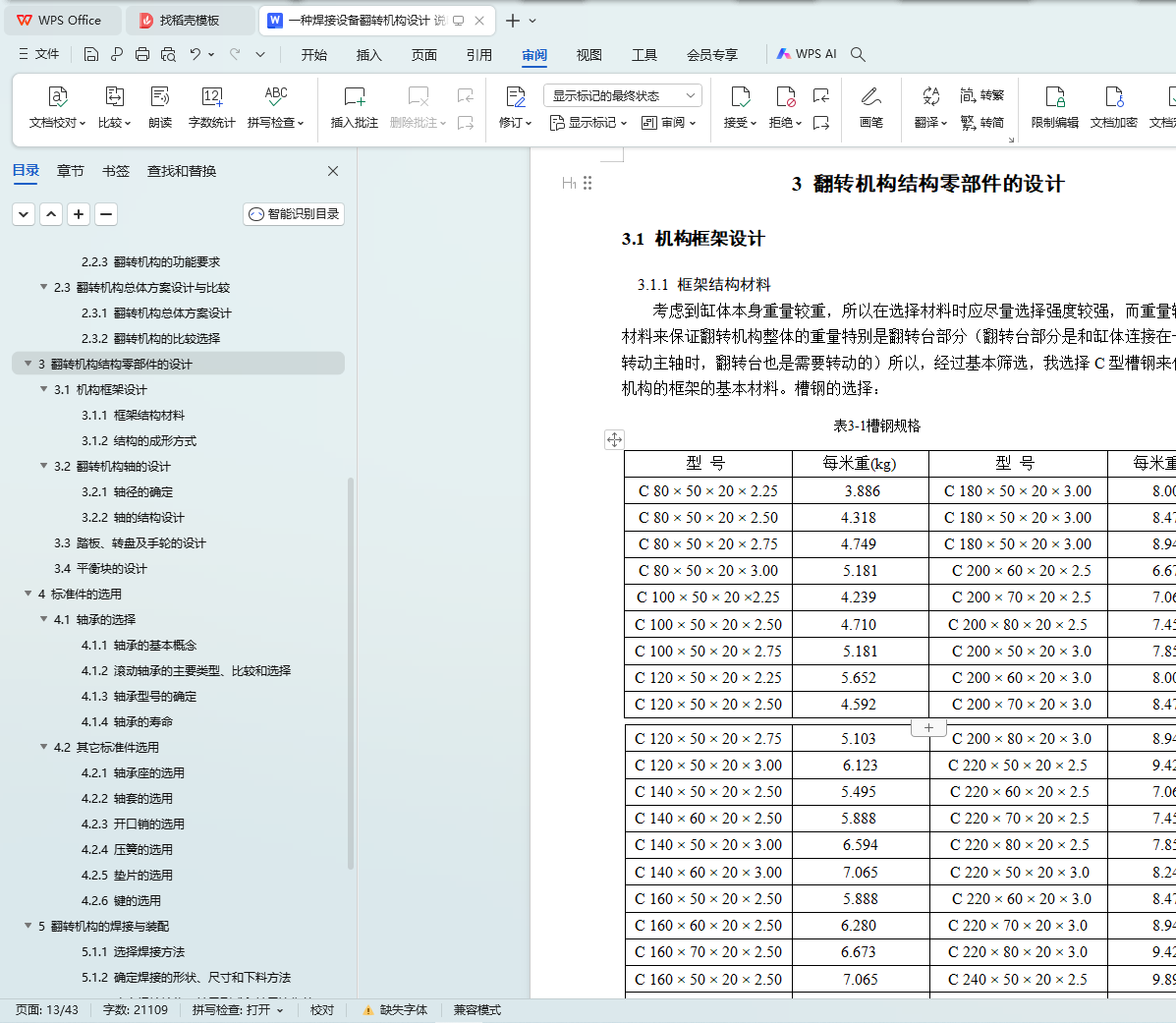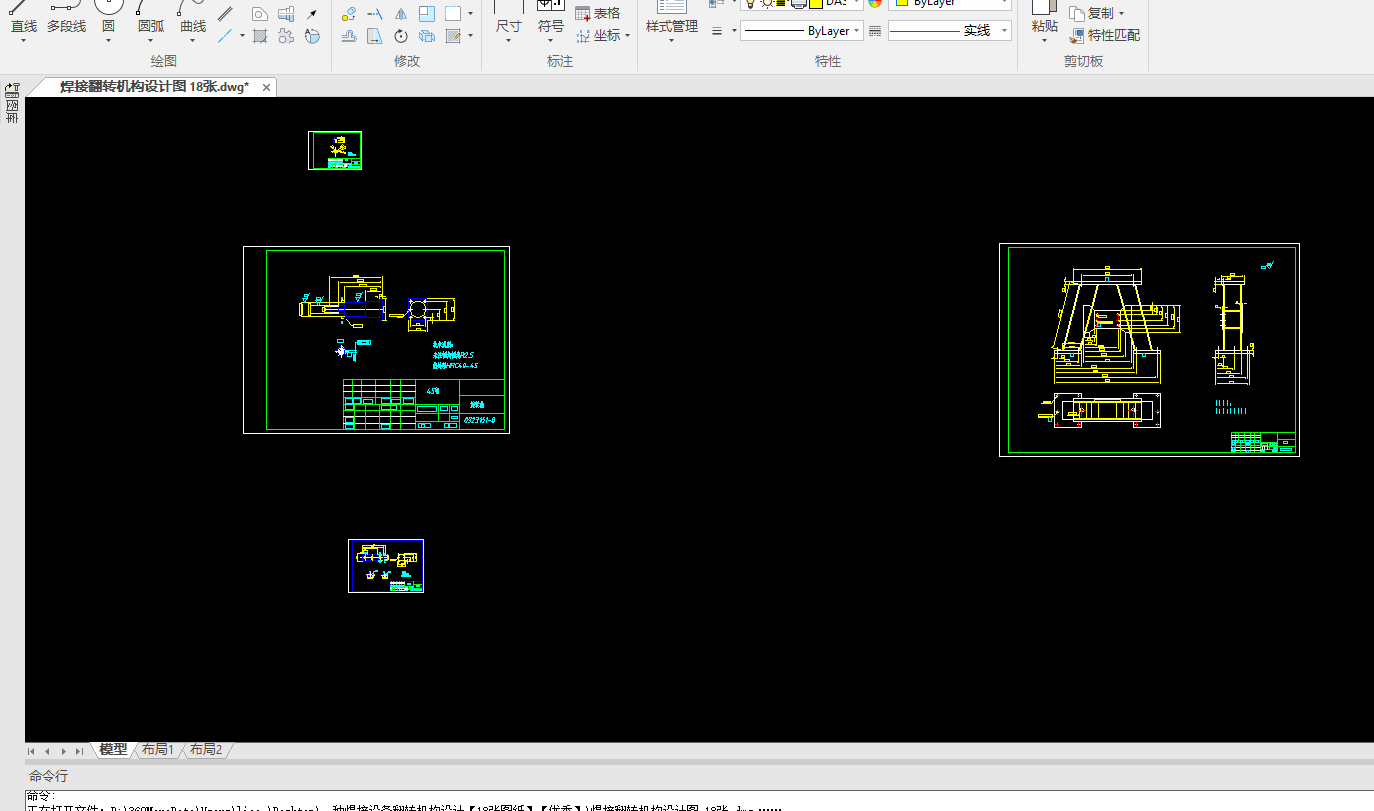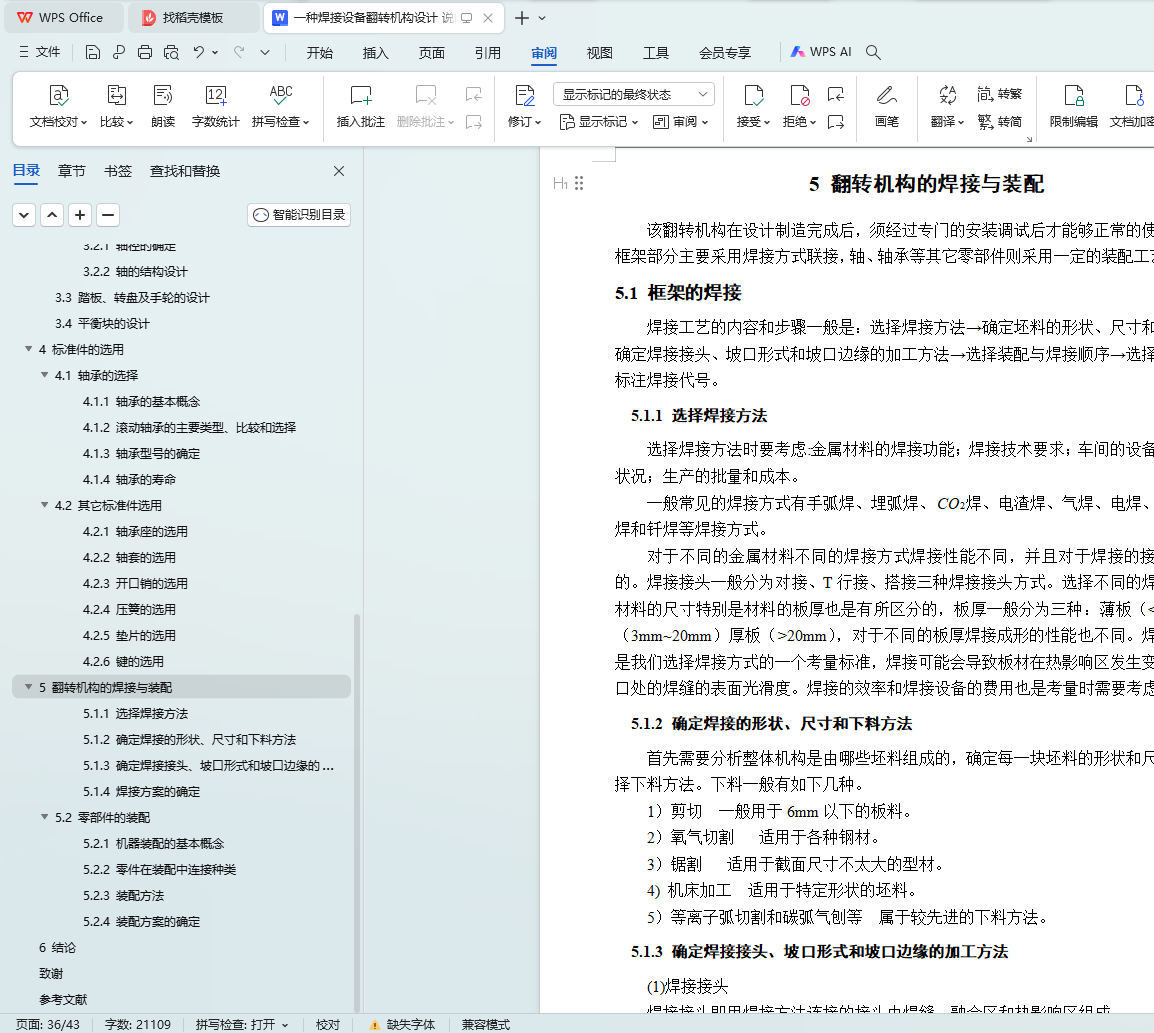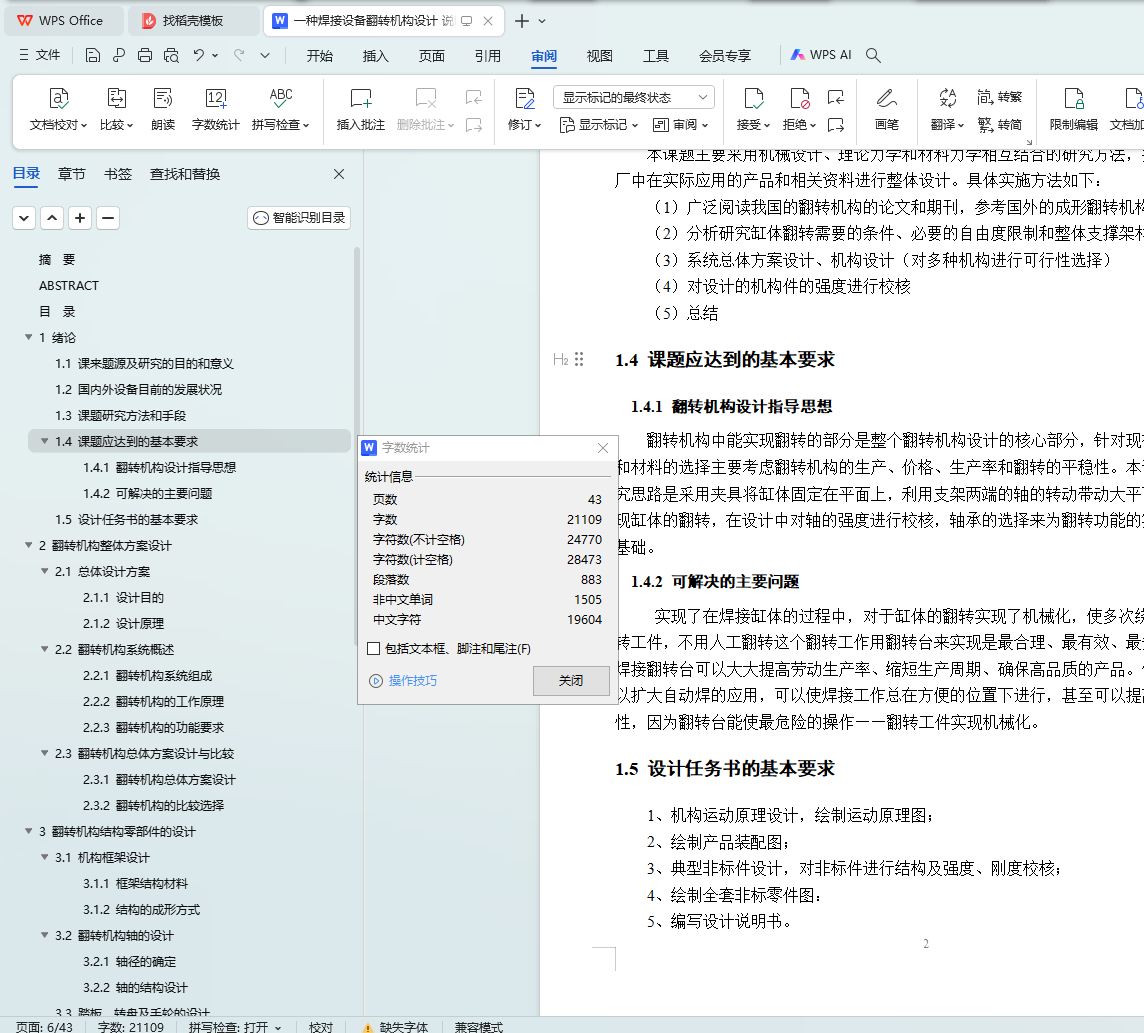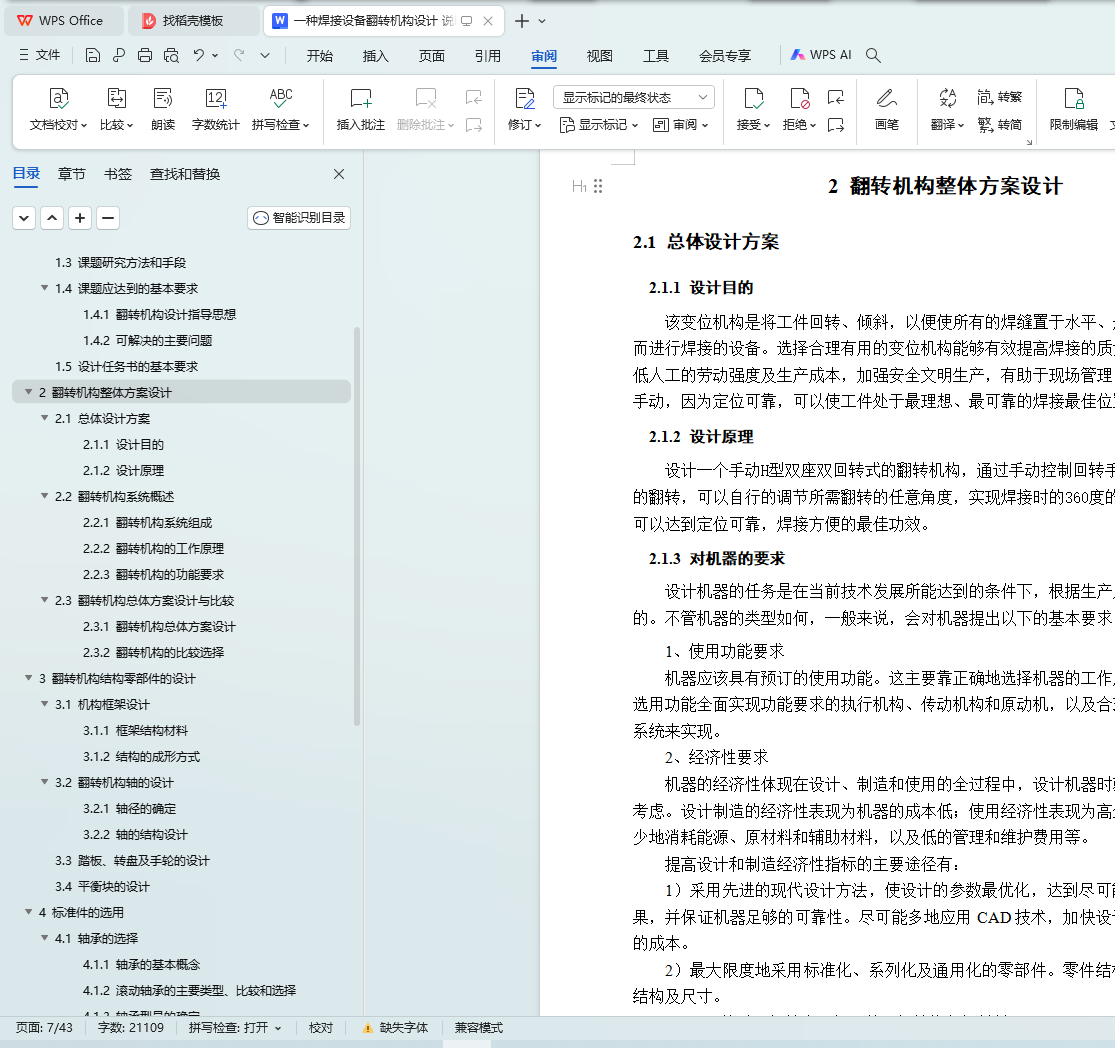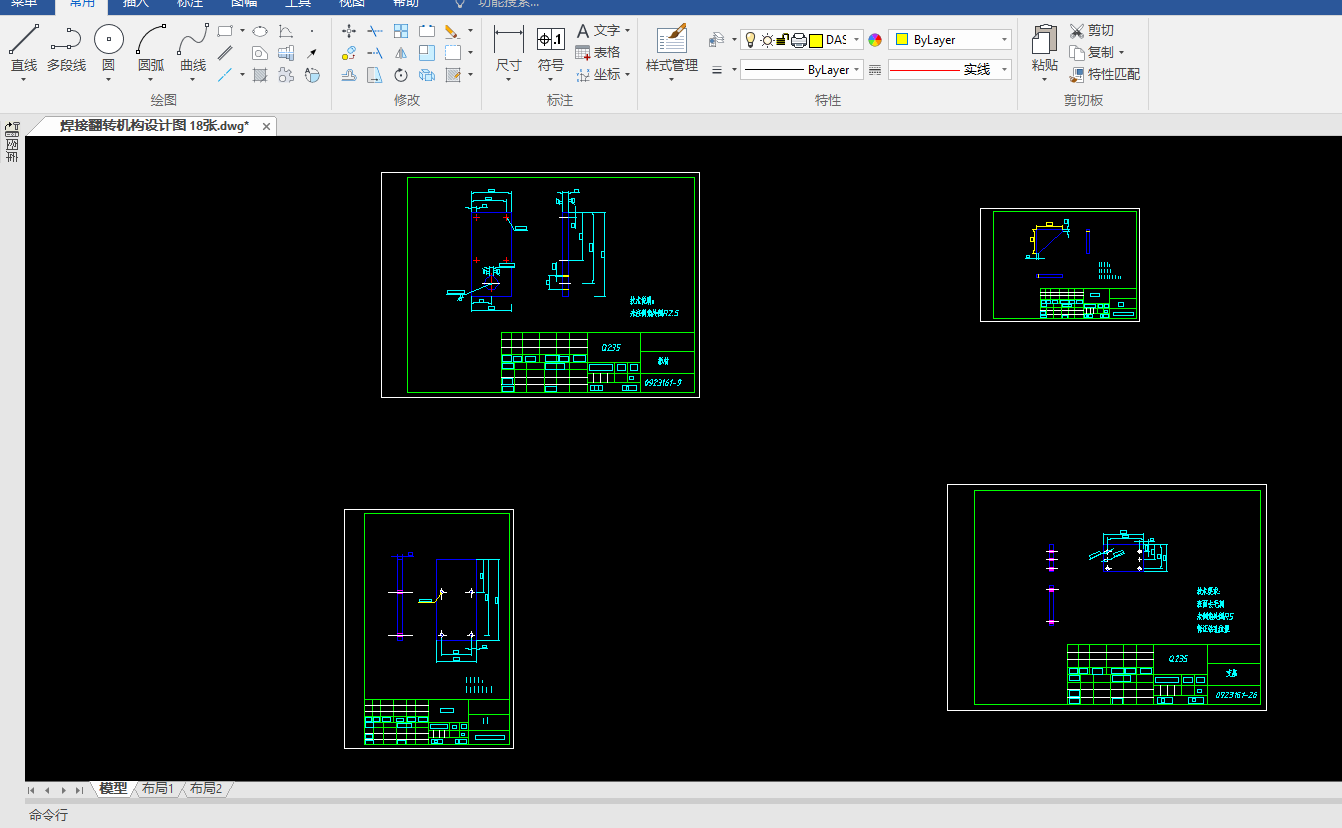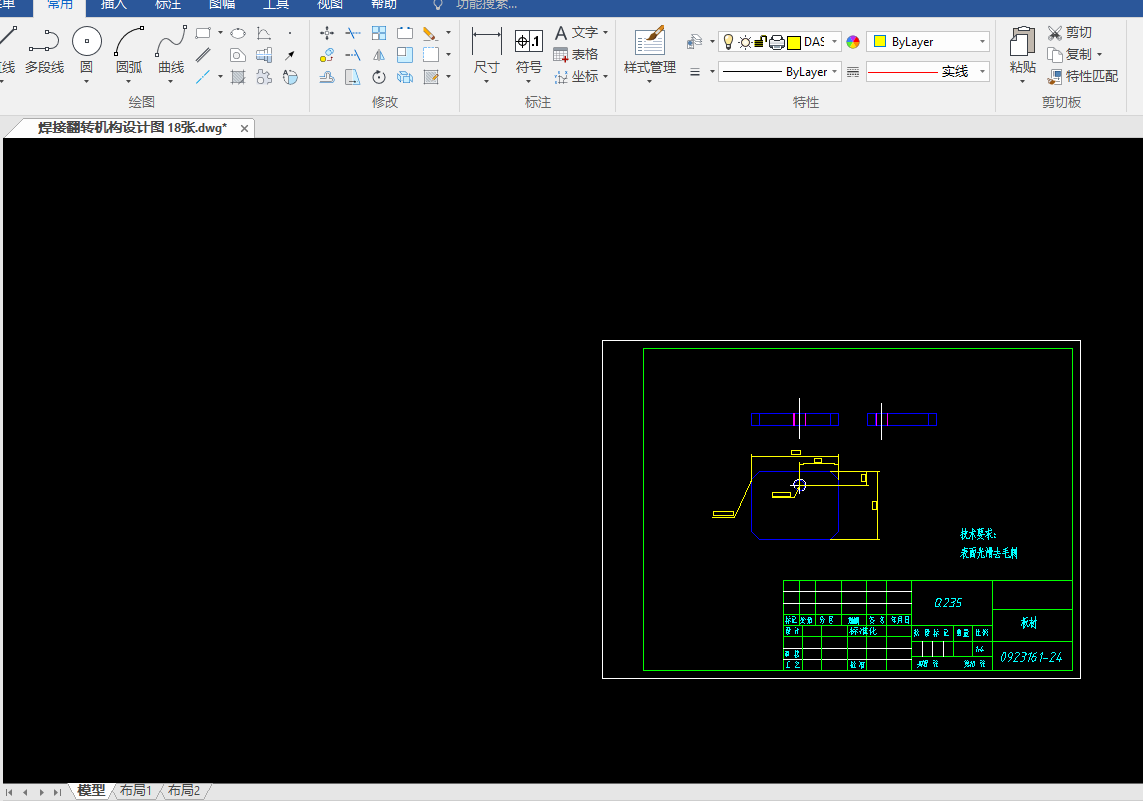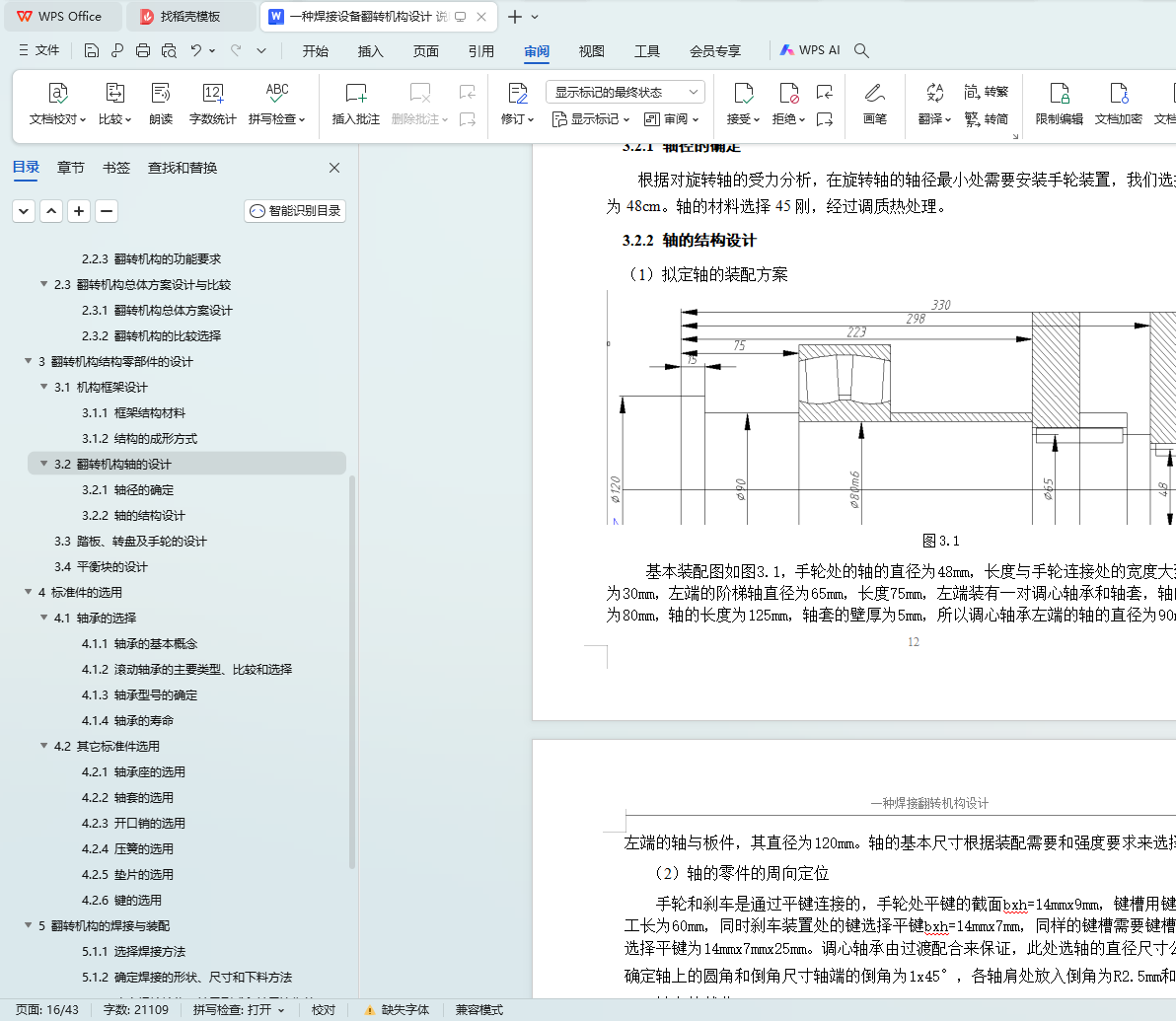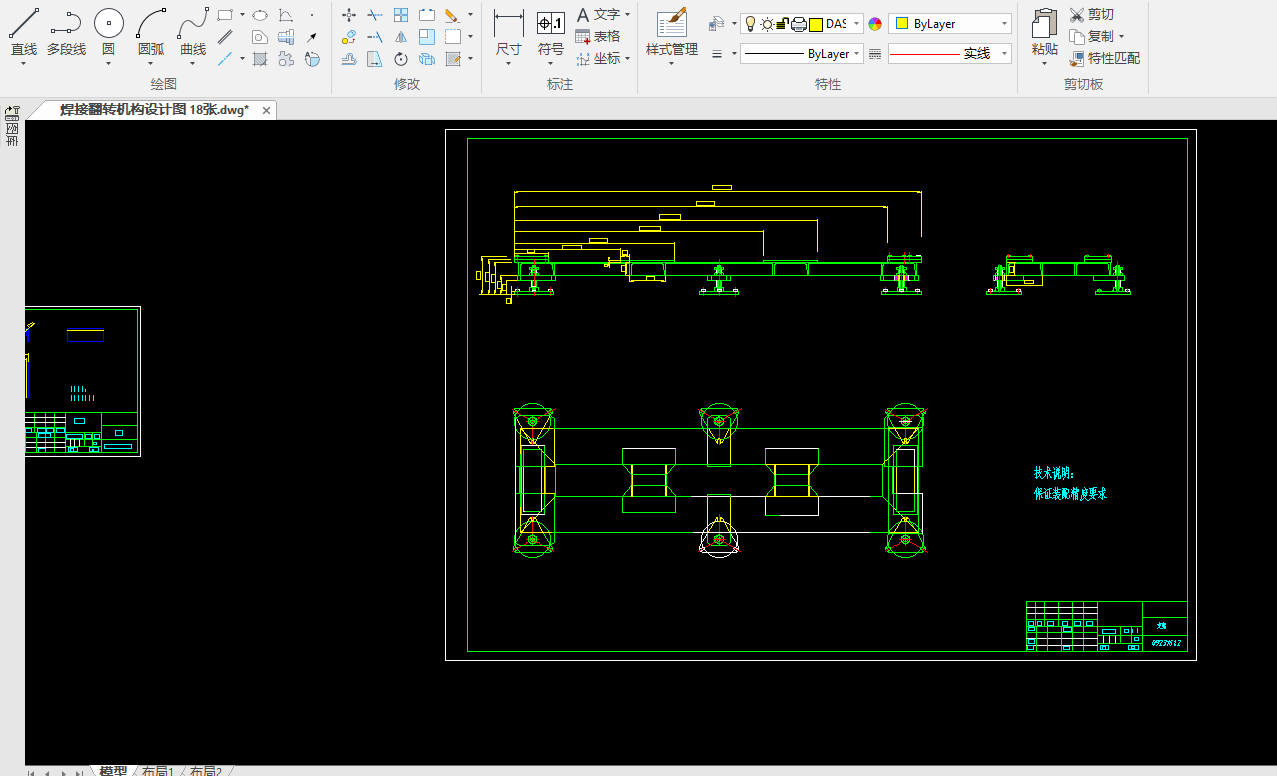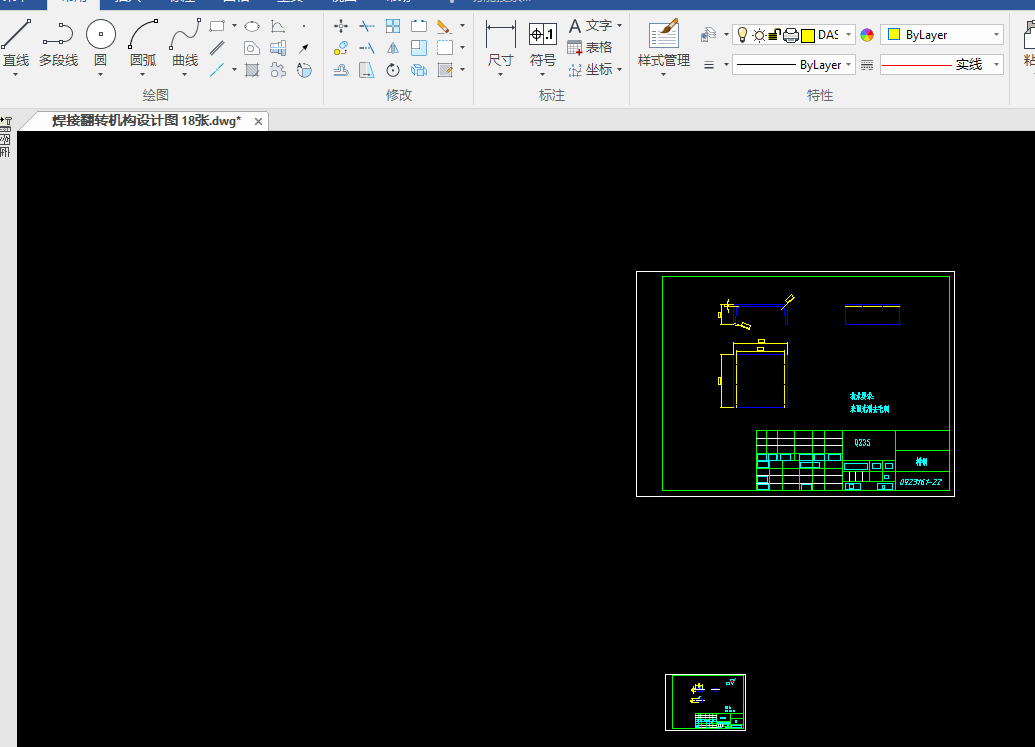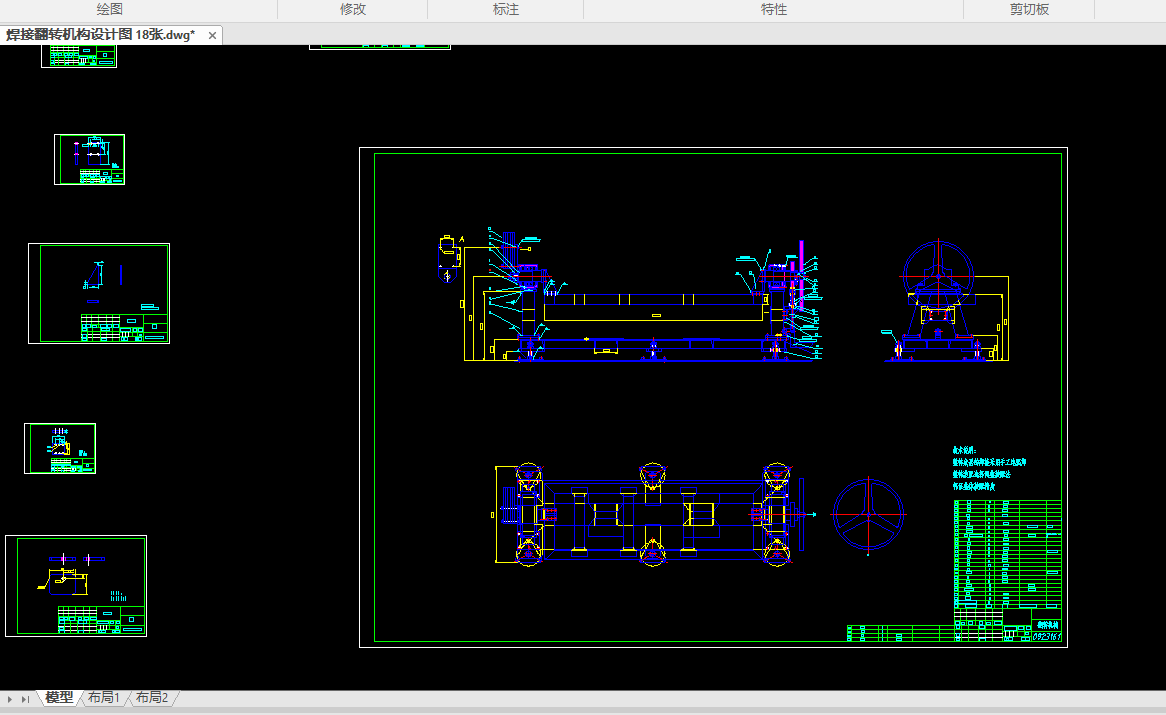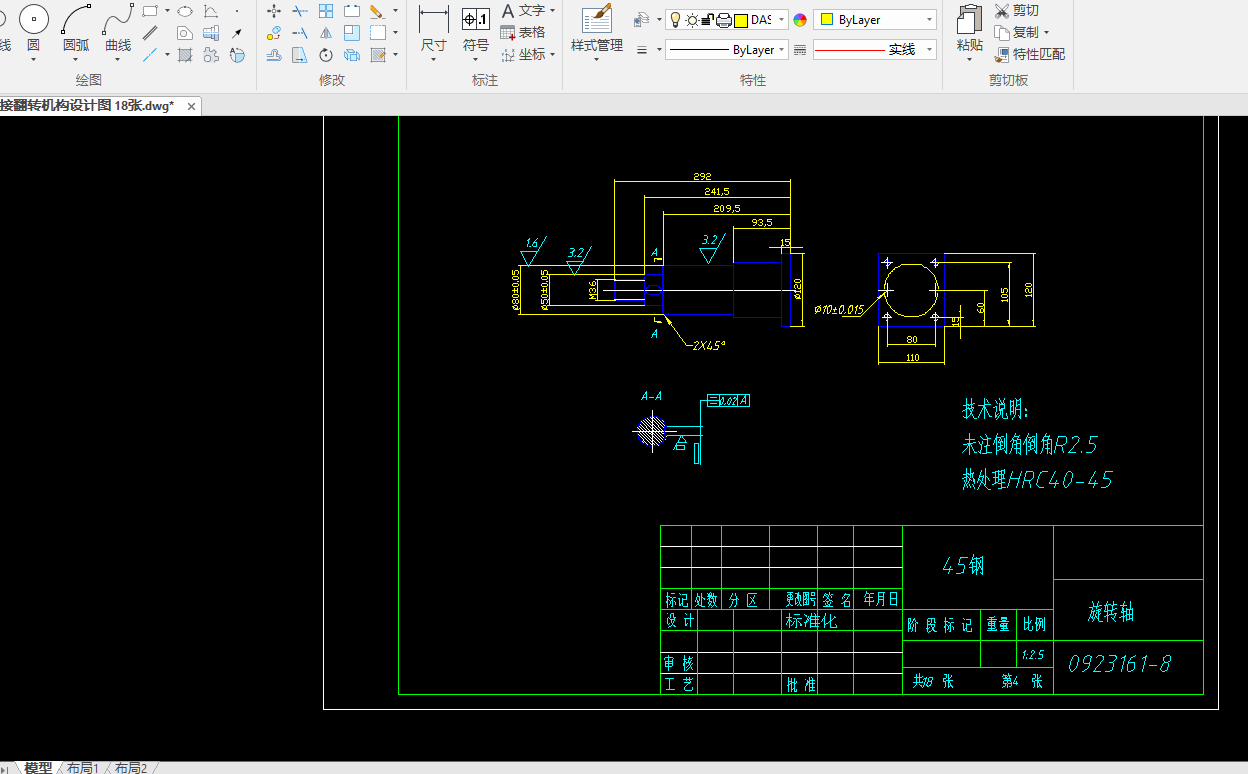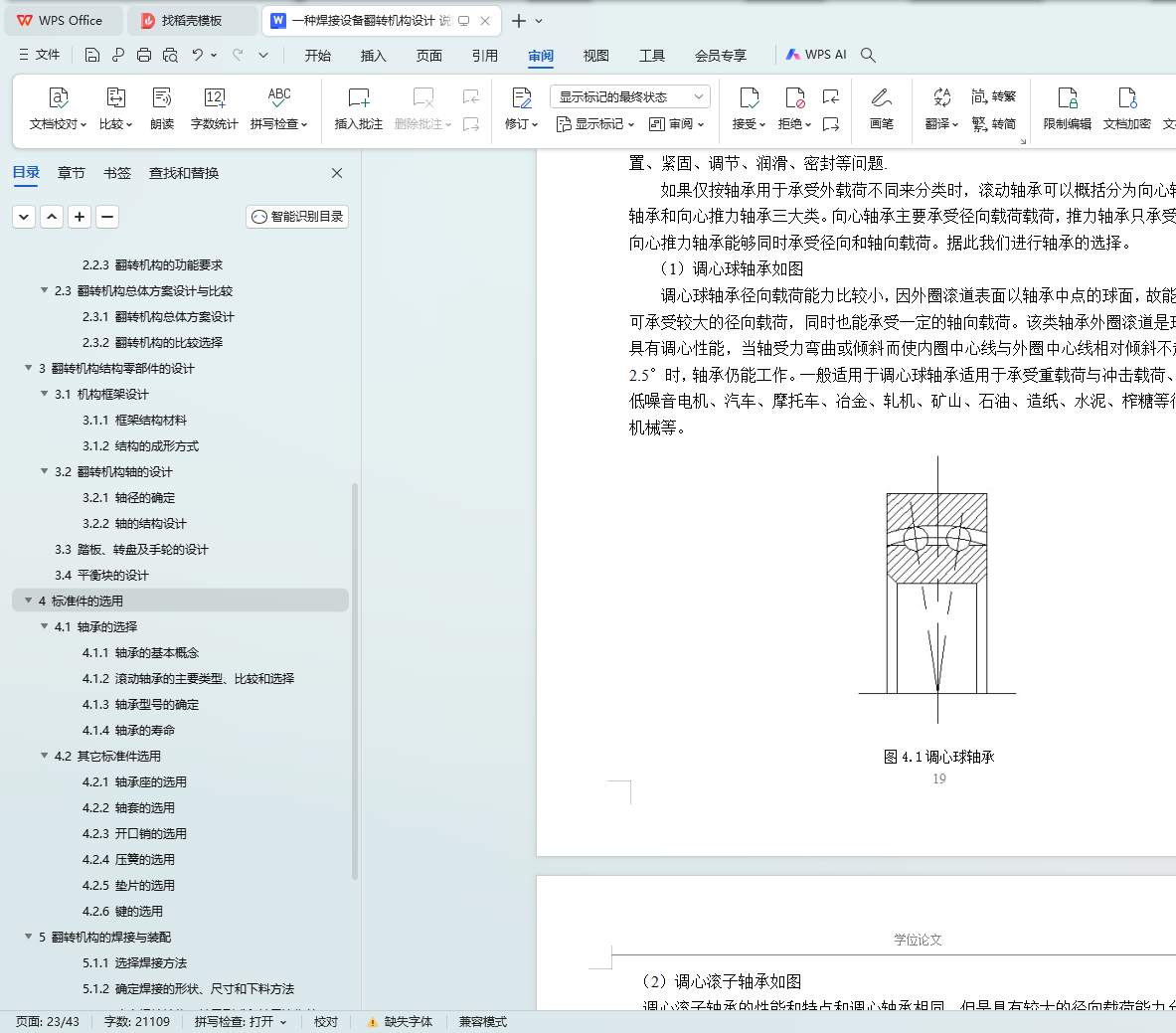摘 要
本文阐述了大型缸体翻转提升机构的设计,设计只讲解了机械结构设计,设计主要是为了使得缸体在生产过程中更容易加工,更容易焊接。机械结构部分采用了轴类转动和大平面式定位装置组成。包括整体系统设计、翻转机构的设计、框架的设计等。在设计中对传动轴和基本部件的强度进行了校荷,来保证其强度要求同时需要进行焊接部分的强度校荷,来最终确定设计方案。
焊接翻转机构的结构尺寸、平稳性、翻转的连续性以及制造成本对提高焊接效率和保证安全性有很大的影响,研究了可以实现原地低位的翻转机构,并对动态稳定性进行分析,结果表明:翻转机构在翻转时连续平稳。翻转机构占地空间小,制造成本低,具有良好的应用前景,在国内外焊接生产线上有很高的推广价值。
关键词:焊接;翻转机构;结构设计
ABSTRACT
This paper expounds the mechanism design of large converter overturning, only on the design of mechanical structure design, the design is to make the boiler is easier to process in the production process, easy welding. The mechanical structure part adopts the structure of modular fixture chain turnover, hydraulic lifting. Including the transmission system design, the turnover mechanism design, hydraulic cylinder design. In the design of the transmission shaft and the basic components of the strength of the school charge, to ensure its strength requirements and the need for welding part of the strength of the school charge, to determine the final design scheme.
Weld the structure size, steady, inside out consecution and manufacturing costs of the inside out machine to weld to the exaltation the efficiency and the assurance safeties contain very big influence.Studying can carry out an inside out and inside out organization, and carried on the analysis to the dynamic state stability, the result enunciation:Inside out organization at inside out is continuously steady.The inside out organization covers the space small, the manufacturing cost is low, having the good applied foreground, producing in the domestic and international welding on-line have the very high expansion value.
Key words: Converter;Inside out organization;architectural design
目 录
摘 要
Abstract
目 录
1 绪论
1.1 课来题源及研究的目的和意义
1.2 国内外设备目前的发展状况
1.3 课题研究方法和手段
1.4 课题应达到的基本要求
1.4.1 翻转机构设计指导思想
1.5 设计任务书的基本要求
2 翻转机构整体方案设计
2.1 总体设计方案
2.1.1 设计目的
2.1.2 设计原理
2.2翻转机构系统概述
2.2.1翻转机构系统组成
2.2.2翻转机构的工作原理
2.2.3翻转机构的功能要求
2.3翻转机构总体方案设计与比较
2.3.1 翻转机构总体方案设计
2.3.2翻转机构的比较选择
3 翻转机构结构零部件的设计
3.1机构框架设计
3.1.1框架结构材料
3.1.2 结构的成形方式
3.2 翻转机构轴的设计
3.2.1轴径的确定
3.2.2 轴的结构设计
3.3 踏板、转盘及手轮的设计
3.4平衡块的设计
4 标准件的选用
4.1轴承的选择
4.1.1轴承的基本概念
4.1.2滚动轴承的主要类型、比较和选择
4.1.3轴承型号的确定
4.1.4轴承的寿命
4.2其它标准件选用
4.2.1轴承座的选用
4.2.2轴套的选用
4.2.3开口销的选用
4.2.4 压簧的选用
4.2.5 垫片的选用
4.2.6 键的选用
5 翻转机构的焊接与装配
5.1 框架的焊接
5.1.1选择焊接方法
5.1.2确定焊接的形状、尺寸和下料方法
5.1.3确定焊接接头、坡口形式和坡口边缘的加工方法
5.1.4焊接方案的确定
5.2零部件的装配
5.2.1机器装配的基本概念
5.2.2零件在装配中连接种类
5.2.3装配方法
5.2.4装配方案的确定
5 结论
致谢
参考文献
